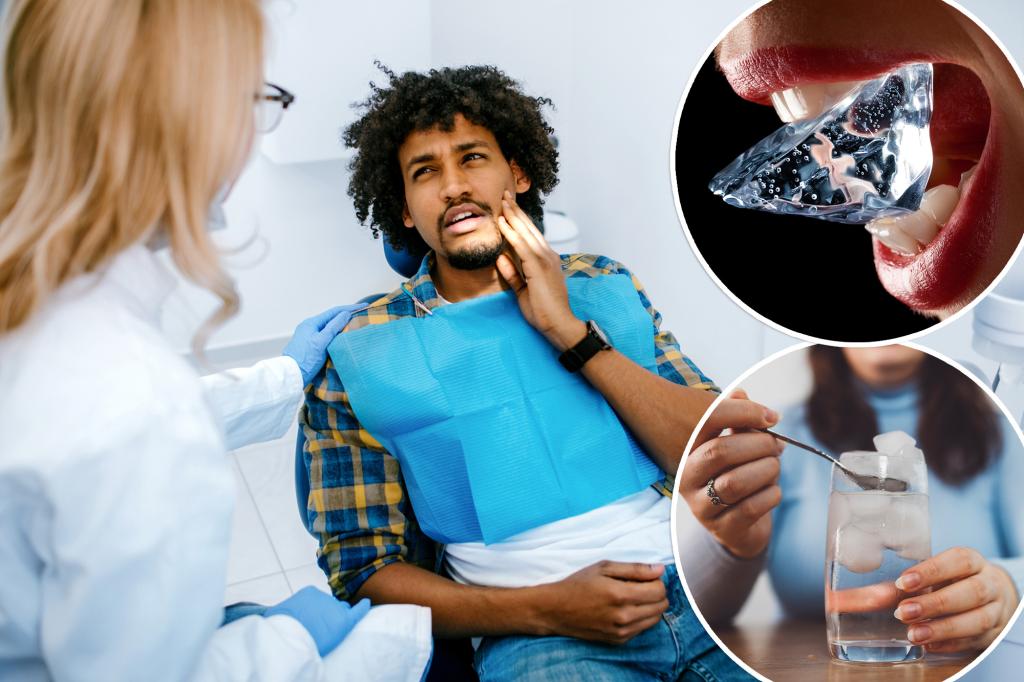Dentists are warning about the risks of chewing ice, including potential chipped or fractured teeth and increased sensitivity to temperature changes. Dr. Roopali Kulkarni, a spokesperson for the American Dental Association, explained that pushing ice crystals against tooth enamel can lead to damage. Chewing ice may be done out of boredom, hunger, stress, to stop smoking, satisfy pregnancy cravings, or simply for the sound of the crunch. Compulsive ice eating, known as pagophagia, is linked to iron-deficiency anemia and is considered a form of pica, a psychological disorder characterized by consuming non-food items.
Some individuals have shared their ice-chewing habits on social media, with groups like Ice Chewers Anonymous on Reddit boasting 8,400 members who discuss their perfect ice-chewing techniques. Dentists are urging people to stop chewing ice due to the potential harm it can cause to teeth. Videos on platforms like TikTok show the consequences of continuing the habit, such as tooth microfractures that can result in pain and require extraction, bone grafting, and implant placement. The coldness of the ice could also pose issues for fillings and crowns due to different rates of expansion and contraction compared to natural teeth.
To quit the habit of chewing ice, experts recommend letting the ice melt on the tongue instead of chewing it or avoiding ice altogether in drinks to prevent temptation. Soft options like slushies or snow cones are gentler on the teeth and offer a similar texture. For those seeking a crunch, alternatives like baby carrots or apple slices can satisfy the urge without the risk of damaging teeth. Overall, dentists emphasize the importance of avoiding chewing on hard substances like ice to protect dental health and prevent potential tooth fractures and sensitivity to temperature changes.
Chewing ice can lead to various problems for dental health, including enamel damage and tooth fractures. Dr. Roopali Kulkarni, a doctor of dental medicine, highlighted the crystal structure of tooth enamel and ice, explaining how the force of pushing them together can result in damage to teeth. People may chew ice for various reasons such as boredom, stress, or to satisfy cravings, but dentists advise against the habit due to the potential risks it poses for oral health. Compulsive ice eating, known as pagophagia, is linked to iron-deficiency anemia and is considered a form of pica, a psychological disorder characterized by consuming non-food items.
Social media groups, such as Ice Chewers Anonymous on Reddit, showcase individuals sharing their ice-chewing experiences and techniques. Dentists are using platforms like TikTok to demonstrate the consequences of continuing the habit, such as tooth microfractures that can lead to painful treatments like extraction, bone grafting, and implant placement. Dr. Natalie Peterson, a dentist at the University of Minnesota School of Dentistry, warned about the effects of ice chewing on fillings and crowns, which may suffer from different rates of expansion and contraction compared to natural teeth due to temperature changes. Experts recommend alternatives like slushies or snow cones for those wanting a similar texture without the risks associated with chewing ice.















